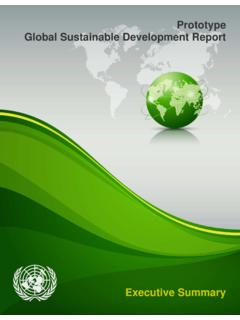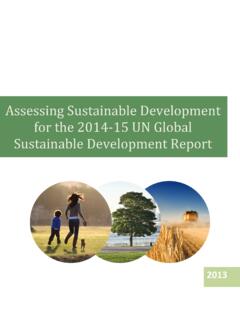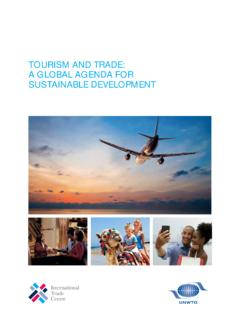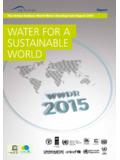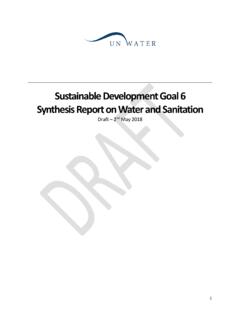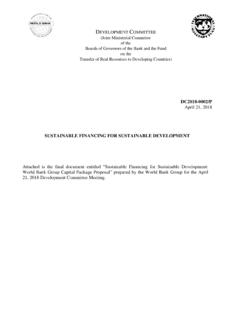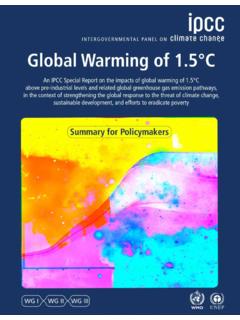Transcription of Aligning financial system architecture and innovation with ...
1 12030 AGENDA FOR sustainable DEVELOPMENTA ligning financial system architecture and innovation with sustainable development Simon Zadek, UNHomi Kharas, The Brookings @T20 Solutions/T20 Solutions/T20 Solutions3 Abstract Finance is a keystone to the successful implementation of the Agenda 2030 but significant barriers exist to securing adequate public and private financing to achieve the sustainable development Goals. A broader strategy is needed to align the systemic features of finance and its relationship with the universally-embraced 2030 Agenda.
2 The G20 has a central role in shaping the future direction of the global financial system , and given G20 Leaders commitment to further align the G20 s work with the 2030 Agenda, the policy brief considers ways in which the G20 could advance such a systemic 2015, G20 Leaders have committed to further align the G20 work with the 2030 Agenda. This alignment both as a policy framework and through distinct aspects is indispensable to fulfil the G20 s mission to advance strong, balanced, sustainable and inclusive economic growth.
3 In 2018 G20 themes include the future of work, the energy transition, climate and sustainability, financial inclusion, sustainable finance and the digital economy, which are all central elements of the 2030 Agenda. Finance is a keystone to the successful implementation of the 2030 Agenda. The Commission on Business and sustainable development estimates that it has imbedded new business opportunities that could unlock US$12 trillion.(1) The OECD Investing in Climate; Investing in Growth report to the G20, highlighted the upside growth, productivity and jobs potential of climate-smart infrastructure investment.
4 (2) The ILO has reported that implementing policies to promote a green economy will create twenty-four million new jobs globally by 2030.(3)Significant barriers can exist to securing adequate public and private financing for the 2030 Agenda. Public financing is constrained by: (a) growing/competing demands, (b) high levels of indebtedness, particularly since the financial crisis, and (c) the corrosive effects of corruption, illicit financial flows and tax evasion. Private financing is constrained by: (a) returns below-market-expectations, (b) ineffective assessments of sustainability related risks and 2030 Agenda for sustainable Development4opportunities and (c) perverse incentives leading to short-termism.
5 Positive actions are being taken to overcome policy and market-driven barriers and close the financing gaps, including in: economic, industrial, environmental and social policies; innovative financing mechanisms; and actions to improve financial integrity. More information available in the Appendix. Measures are increasingly being taken to overcome barriers across the global financial system . These include a mixture of national and regional actions; international voluntary collaborative initiatives; and inter-governmental cooperation.
6 More information available in the , even with this progress, today s financial system does not channel global savings to much-needed, productive investments that could underpin sustainable development . The global context of low interest rates is causing many pension funds to question how to meet their long-term fiduciary responsibilities, especially given trends of ageing populations. Meanwhile, investments that could deliver sustainable development outcomes and returns to investors, remain unfinanced. Investments in clean energy infrastructure totalled US$324 billion in 2016, however investment in fossil energy use was over US$800 billion.
7 (4) Green bond issuance has increased by several orders of magnitude over the last decade, but remains less than 1% of total bonds issued globally.(5) The urgency to act indicates the need for a broader strategy that aligns the systemic features of finance and its relationship with the 2030 Agenda. The Paris Agreement Clause commits signatories to Aligning financial flows with climate goals. Central bank governors and CEOs of leading financial institutions are calling for system level action. In the G20 space catalytic actions with high potential for timely, system -level change that would benefit from international co-operation need to be the focus, whilst recognising the value of smaller scale and long-gestation G20 is well placed to advance the 2030 Agenda through its central role in shaping international cooperation in economic and financial policies and practices.
8 2030 Agenda for sustainable Development5 The remainder of this brief therefore focuses on ways in which the G20 can more ambitiously advance the alignment of the global financial system with the 2030 the financial system with the 2030 Agenda is a matter of harnessing major change opportunities. Given the complexity and dynamism of this system , it is not possible to create a blueprint for the solution. Instead what is needed is to progress the 2030 Agenda by leveraging major, emergent changes that are taking place.
9 For example: financial crises offer major opportunities to reshape aspects of the financial system , such as following 2008, which addressed some of the root causes of that crisis but new vulnerabilities are now emerging. International political agreements offer opportunities to shape systemic outcomes, such as the Paris Agreement which has helped system -level initiatives to advance climate considerations across the financial system . Major investment programs such as China s Belt and Road initiative, which provide opportunities to influence the alignment of major investment flows, as well as their broader policy economy topics focused on here are the opportunities for sustained, system -level intervention in Aligning the financial architecture and the digitalisation of finance with the 2030 Agenda.
10 financial architecture refers to the rules governing the financial system , and concerns the roles of financial policy makers, regulators, standard setters and market-based rule-makers such as rating agencies and securities and derivatives exchanges. Digitalisation of finance refers to the impact of a complex, evolving technological eco- system on the financial system , including mobile platforms, big data and artificial intelligence, blockchain, crypto-assets and the internet of , the G20 is one of the main, inter-governmental platforms through which policy and practice is debated and determined in shaping the international financial architecture and the digitalisation of finance.
